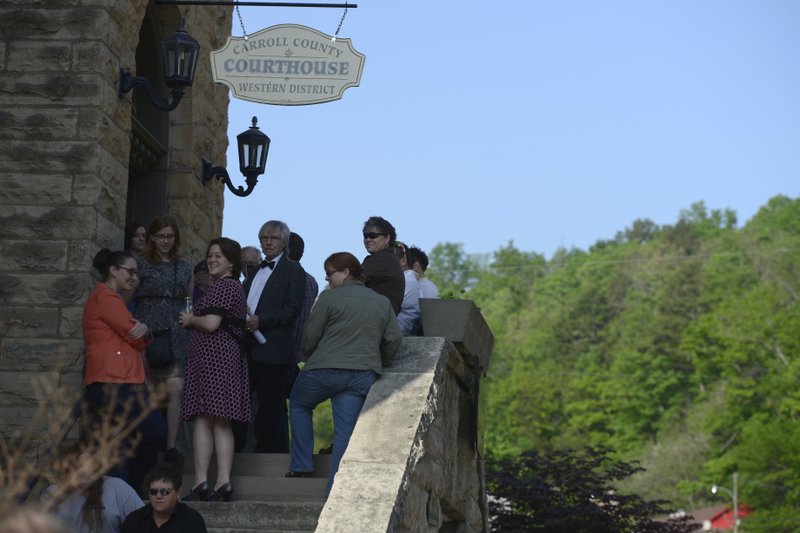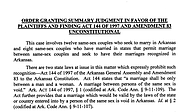EUREKA SPRINGS — About 10 gay couples lined up Saturday morning outside of a county courthouse in northwest Arkansas, one day after a judge ruled that the state's same-sex marriage ban was unconstitutional.
It isn't clear whether any same-sex marriage licenses will be issued Saturday, because couples must find a clerk willing to do so.
Pulaski County Circuit Judge Chris Piazza ruled Friday that Arkansas' 2004 voter-approved amendment to the state constitution violates the rights of gay couples. He didn't put his ruling on hold as some judges in other states have done.
Attorney General Dustin McDaniel said he would appeal the ruling and asked it be suspended during that process. No appeal had been filed as of Saturday morning.
The first couple in line at the Carroll County Courthouse was Kristin Seaton, 27, and Jennifer Rambo, 26, both of Fort Smith, Arkansas. The couple has been together four years.
Upon hearing about the judge's ruling, Seaton said her first thought was "Is this really happening?" The couple set out for the Pulaski County Courthouse, but learned on the way there that it wouldn't be open Saturday. Eureka Springs, a popular site for destination weddings in the Ozarks, was their next stop, after someone told them it was the most likely place to get a license.
Seaton and Rambo slept in their Ford Focus after arriving at 2 a.m. Saturday, waking up every 30 minutes to make sure they were at the head of the line. The moment they saw another couple pull up, Seaton and Rambo bolted to the courthouse.
"I don't think I ran that fast," Rambo said.
Arkansas' amendment was passed in 2004 with the overwhelming support of Arkansas voters. Piazza's ruling also overturned a 1997 state law banning gay marriage. In striking down the ban, Piazza wrote that it is "an unconstitutional attempt to narrow the definition of equality."
"The exclusion of a minority for no rational reason is a dangerous precedent," he said in his ruling.
The U.S. Supreme Court last year ruled that a law forbidding the federal government from recognizing same-sex marriages was unconstitutional. Since then, lower-court judges have repeatedly cited the decision when striking down some of the same-sex marriage bans that were enacted after Massachusetts started recognizing gay marriages in 2004.
Federal judges have ruled against marriage bans in Michigan, Oklahoma, Utah, Virginia and Texas, and ordered Kentucky, Ohio and Tennessee to recognize same-sex marriages from other states.


